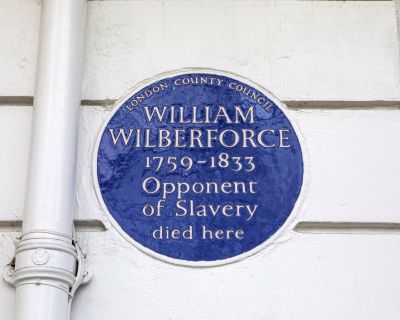Wilberforce and slavery: A model for Christians in politics

Some books serve as a catalyst for monumental change. Others document and reflect on the culmination of such change. A Letter on the Abolition of the Slave Trade, by William Wilberforce (1807) is a shining example of the latter. Published less than a month before the British Parliament voted overwhelmingly to abolish the slave trade, the book encapsulates two decades of relentless effort. One historian aptly described that parliamentary vote as “one of the turning events in the history of the world.”
Wilberforce’s work is not merely historical; it provides a timeless model for how Christians can and should engage in public life. His example remains relevant in every generation, calling us to integrate faith, reason and courage into our engagement with public policy.
Faith as the foundation
Wilberforce’s approach to public policy was unapologetically grounded in Christian morality. He spoke boldly as a Christian in Parliament, addressing his nation’s accountability to God. Even in a society that might appear more receptive to Christian values than our own, such declarations were not always welcome.
In his book, Wilberforce begins and ends with a solemn warning: the slave trade was an abominable evil that placed the British Empire under the judgment of God. His moral clarity cut through political expediency, challenging his contemporaries to see the slave trade not as an economic necessity but as a profound moral failing.
For Christians today, Wilberforce’s example reminds us that our faith is not meant to be compartmentalized. Our moral compass, informed by Scripture, must guide our engagement with the pressing issues of our time.
Reasoned, detailed advocacy
Wilberforce paired his moral convictions with meticulous research and evidence. Early in his campaign, he often spent 14 hours a day studying and gathering facts about the slave trade — a pace he eventually moderated for the sake of his health. This rigorous preparation allowed him to systematically counter every objection raised by his opponents.
In A Letter on the Abolition of the Slave Trade, Wilberforce methodically dismantles pro-slavery arguments, presenting a case so thorough and compelling that it could not be ignored. His work underscores the importance of combining moral passion with intellectual precision.
For Christians today, this is a vital lesson. It is not enough to simply declare what is right; we must also engage in reasoned, evidence-based advocacy. Whether the issue is religious freedom, the sanctity of life or justice for the marginalized, we must be prepared to make our case with clarity and conviction.
Courage in the public square
Wilberforce’s campaign was not without peril. He faced fierce opposition from powerful interests tied to the slave trade and colonial economies. At one point, he was challenged to a duel by a slave ship captain, and he received multiple death threats. Yet, he pressed on with unwavering determination.
In his book, Wilberforce confronts his opponents head-on, arguing that the abolition of the slave trade would ultimately benefit the economy. More importantly, he declares that even if economic losses occurred, the moral imperative to end the “most enormous crime” of slavery outweighed all else.
For Christians today, courage is equally essential. Engaging in public life often means standing against cultural tides and enduring criticism or hostility. Wilberforce’s example challenges us to speak the truth in love, regardless of the cost.
A legacy of influence
Former Colorado Christian University President Bill Armstrong exemplified Wilberforce’s model in his decades of public service. Deeply inspired by Wilberforce’s life and work, Armstrong articulated CCU’s mission to raise up a new generation of leaders with “the spirit and the vision of William Wilberforce.”
That mission continues today. As we navigate a complex and often contentious cultural landscape, Wilberforce’s example offers a clear blueprint: ground your work in faith, support it with reason and pursue it with courage.
Wilberforce’s efforts remind us that transformational change is possible when Christians engage the public square with conviction and perseverance. His legacy is a call to action for all who seek to make a difference in our world.
Dr. John Wind, Associate Professor of Theology at Colorado Christian University, is dedicated to nurturing students’ faith through Scripture, inspired by his own transformative college experience. Married to Rachel since 1996, with whom he has five children, Dr. Wind previously served in China for eight years.




























